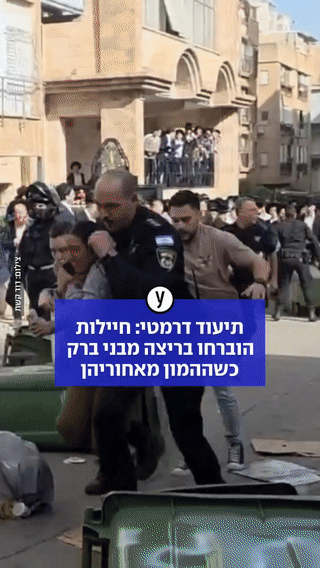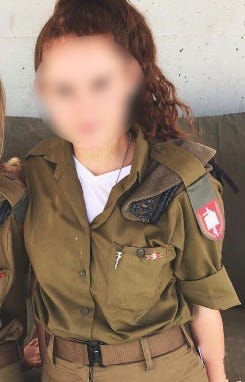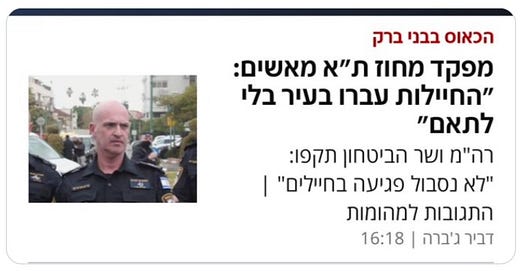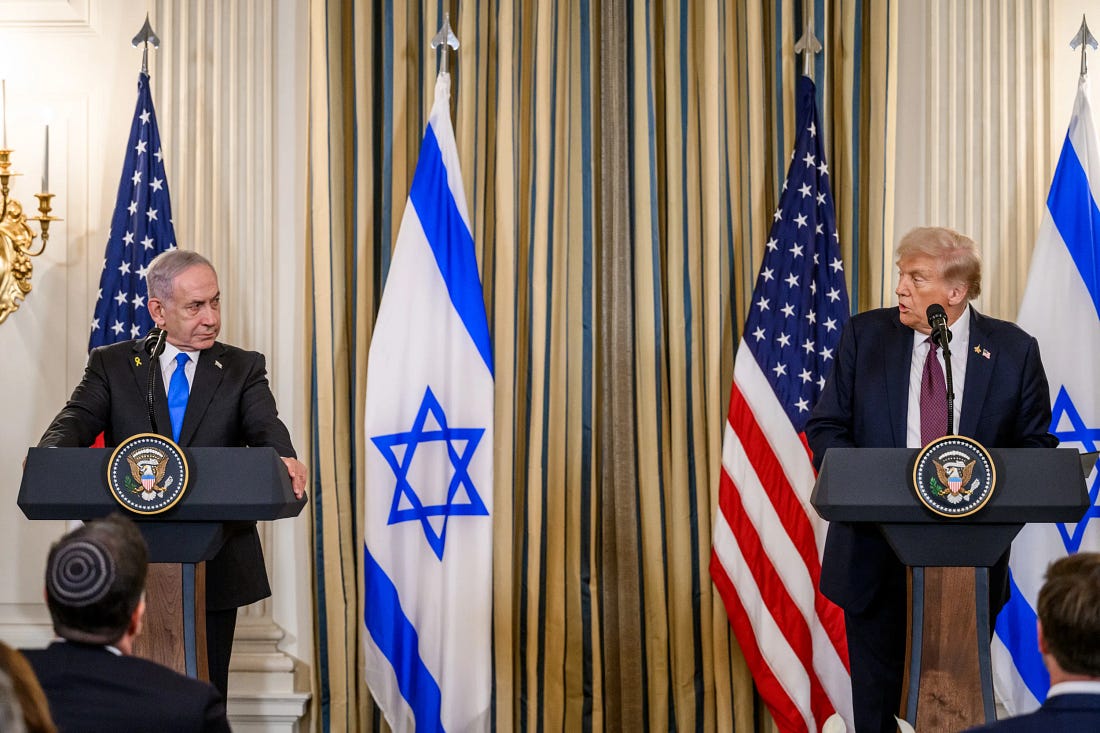A dangerous lullaby is being sung in Hebrew and English on both sides of the ocean. It goes like this: America will always be there. The melody is reassuring, almost parental. It has the tone of permanence. But it is not history. It is hope masquerading as strategy. And Jewish history is merciless toward those who confuse the two.
For more than seventy-five years, Israel has lived beneath the protective shadow of the American eagle. Military aid, diplomatic cover, vetoes at the United Nations, joint exercises, intelligence cooperation, Iron Dome funding, aircraft carriers stationed in the Mediterranean like steel mezuzot affixed to the doorposts of the Jewish state. The relationship is real, deep, and unprecedented in Jewish history. But in real life relationships change in scope, narrative, needs, interests and motives.
To say this is not an accusation against the United States. It is an observation about how great powers behave. America is a superpower with global obligations: China, Russia, Taiwan, Ukraine, oil routes, trade corridors, domestic political cycles, public opinion, and an ingrained reluctance for open-ended wars in distant deserts. At some point—whether in five years or fifteen—a president will sit in the Oval Office and ask a question no Israeli prime minister wants to hear: Is stopping Iran worth risking American lives, American bases, American elections, and American stability? The honest American answer may be no. Not because America hates Israel, but because America is not Israel.
At the moment, Washington and Jerusalem share overlapping concerns: Iranian expansionism, terror proxies, regional instability. But this alignment is conditional. If Iran becomes, in American eyes, a containable nuclear power rather than an imminent one; if Hamas becomes a manageable nuisance rather than a catalyst for regional war; if American voters grow weary of Middle Eastern entanglements; if China becomes the overriding strategic obsession—the calculus changes. For America, a nuclear Iran may become a problem to be managed. For Israel, a nuclear Iran is an existential clock. These are not the same category of threat. Pretending that they are is a form of strategic self-deception.
Here an uncomfortable Jewish reflex must be confronted. Jews have a long and tragic habit of believing that powerful nations will ultimately protect Jewish continuity because doing so is moral, rational, and mutually beneficial. Spain. Germany. Russia. France. Poland. The pattern is painfully familiar: they need us, they value us, they understand. Until the moment they do not.
The entire purpose of Jewish sovereignty was to end this reflex. The founding idea of Israel was radical in its simplicity: the Jews would never again outsource their survival to the goodwill, political moods, or fatigue of another nation.
Yet, quietly and comfortably, Israel has slipped back into a familiar psychological posture. America will restrain Iran. America will deter Hezbollah. America will manage Hamas. America will supply the munitions and apply the diplomatic pressure. America will draw the red lines. But America draws red lines with erasable ink. Israel writes them in blood.
Tehran understands this dynamic with unnerving clarity. The Iranian regime is patient, strategic, and civilizational in its thinking. It is not trying to defeat America; it is trying to outlast America’s interest. Each year, it enriches a little more uranium, arms Hezbollah a little more heavily, strengthens its regional proxies, and watches American elections, American divisions, and American fatigue. The calculation is chillingly simple: if they wait long enough, the day will come when America decides this is no longer worth the trouble. On that day, Israel will face a problem that can no longer be postponed.
The Hamas catastrophe exposed more than a security failure. It revealed a conceptual one. Israel convinced itself that Hamas could be contained through deterrence, intelligence, and a stable regional equilibrium underwritten by American power. But enemies animated by theology, grievance, and martyrdom do not operate by the logic of containment. They operate by the logic of destiny. Iran and its proxies are not trying to manage the conflict. They are trying to reshape the region over decades. America manages. Iran endures. Israel cannot afford to be the manager in a struggle where its enemies are zealots.
This leads to a thought Israeli leadership is reluctant to voice publicly: there may come a moment when Israel must choose between waiting for American approval that will not come, or acting alone and absorbing the diplomatic, economic, and military consequences. That moment is not a distant hypothetical. It is the predictable outcome of how alliances evolve. Every empire eventually recalculates its interests. When it does, it does not ask Jerusalem for permission.
To speak of “going it alone” is not a call for recklessness or ingratitude. It is a call for psychological independence. Israel must cultivate the capacity—military, economic, and political—to act in a scenario where American support is delayed, diluted, or denied. This means independent strike capabilities, stockpiles sufficient for sustained conflict, strategic doctrines not reliant on Washington’s green light, and a political culture that understands the real cost of sovereignty. Sovereignty is not tested when your ally agrees with you. It is tested when they do not.
There is also a moral dimension deeply rooted in Jewish tradition. Classical Jewish law does not treat delay in the face of mortal danger as prudence; it treats it as negligence. When a threat to Jewish life is imminent, waiting for external permission is not piety. It is abdication. Jewish history did not assume Rome’s approval before defending Jewish lives. It is not obvious why Jerusalem should assume Washington’s.
One can easily imagine a headline a decade from now: U.S. Urges Restraint as Israel Considers Action Against Iran. The phrase “urges restraint” is diplomatic shorthand for something far more consequential: this is your problem now. On that day, Israel will either be prepared for independent action, or it will discover that it spent decades confusing alliance with insurance.
Alliances are blessings. The American–Israeli alliance is one of the most remarkable partnerships in modern history. But alliances are never substitutes for self-reliance. America is Israel’s greatest ally. It is not eternal, not uniform in its politics, and not bound by Jewish fate. Israel is. And only Israel is.
The greatest danger to Israel is not Iranian uranium or Hamas rockets. It is the quiet, comforting belief that someone else will ultimately handle the decisive moment. That belief has followed the Jewish people for two thousand years. It should not be allowed to take root again in the era of Jewish sovereignty.
 |
| REPUBLISHED |
https://blogs.timesofisrael.com/why-israel-must-be-prepared-to-go-it-alone/















